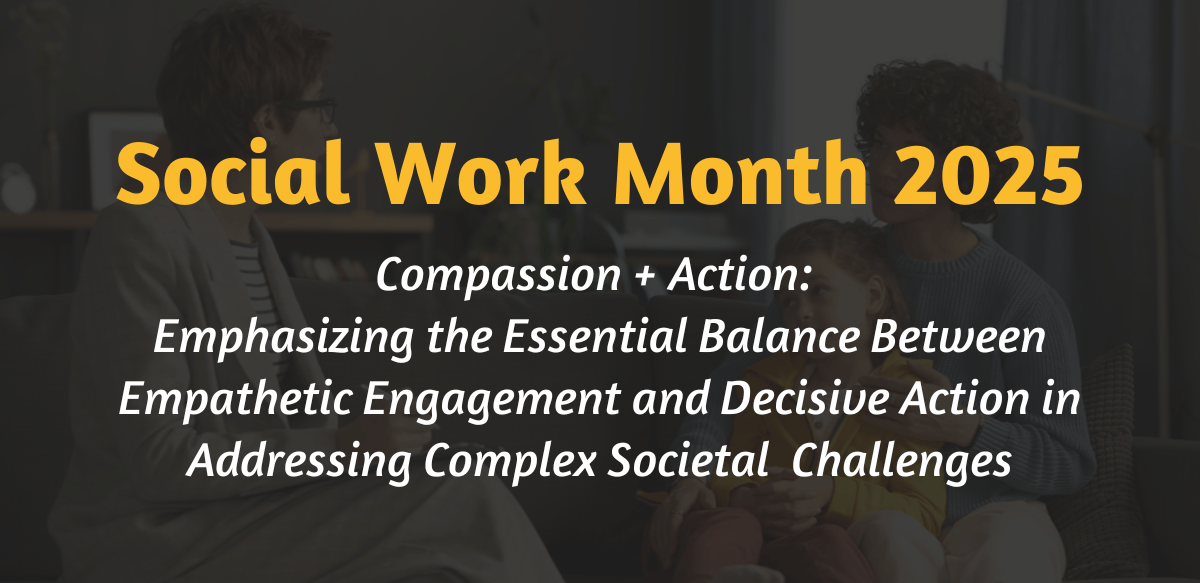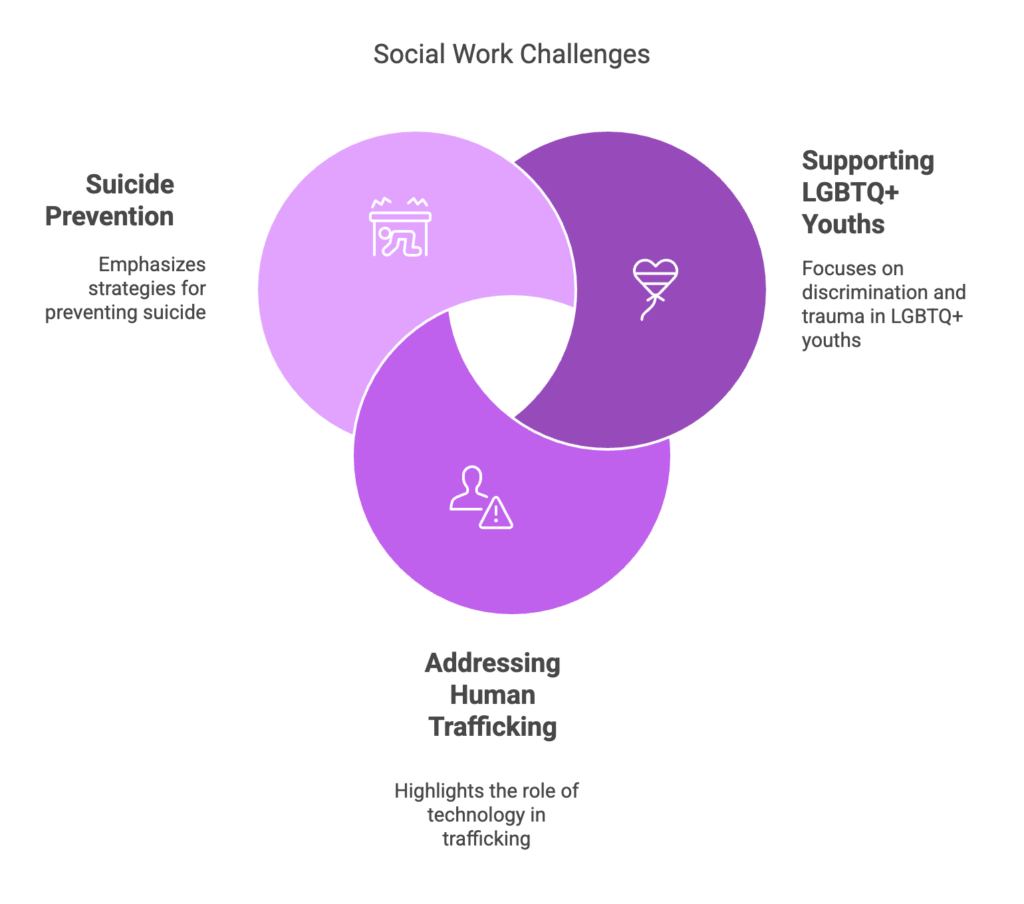
March is Social Work Month, a time to recognize the profound impact social workers have on our communities. The National Association of Social Workers (NASW) has chosen “Social Work: Compassion + Action” as this year’s theme, emphasizing the essential balance social workers maintain between empathetic engagement and decisive action in addressing complex societal challenges. This theme emphasizes the profession’s ethical commitment to advocating for vulnerable populations while also prioritizing self-care to sustain their demanding work.
For over 40 years, Safer Society has worked with thousands of social workers, witnessing their transformative efforts in helping their clients navigate trauma, lead healthier lives, and ultimately improve the safety of their community. This challenging work, as Safer Society’s Director of Continuing Education, David Prescott, once said, is “not for the faint of heart.” As noted in last year’s Social Work Month panel discussion, “The Important Role of Social Workers in Preventing Sexual Abuse,” social workers provide approximately 60% of mental health services in the United States. Despite their significant contributions, they often don’t receive the public recognition they deserve.
Challenges Facing Social Workers
The social work profession is currently navigating several pressing challenges, each requiring innovative approaches and dedication:

- Supporting LGBTQ+ Youths: As highlighted in Safer Society’s Pride Month blog post of 2024, LGBTQ+ youths face higher rates of discrimination and trauma. Despite representing only 7% of the general adolescent population, they make up 15% of the foster care population and 20% of youths in the juvenile justice system.
- Addressing Human Trafficking: January’s Human Trafficking Prevention Month post taught us how essential it is for today’s social workers to understand the role of technology in the lives of their clients. Those who perpetrate trafficking increasingly exploit online platforms to groom potential victims, often targeting children in seemingly safe environments—such as at home after dinner—when parents may be unaware of the risk posed by smartphones and computers.
- Suicide Prevention: Addressing the US suicide rate remains, sadly, a top priority for social workers. The latest data from the CDC reveals that over 49,000 died by suicide in 2022, equating to one death every 11 minutes. The complex nature of suicide risk factors, including mental health conditions, substance abuse, and societal issues, requires social workers to adopt a multifaceted approach to prevention and intervention.
Enhancing Prevention Skills with Evidence-Based Training
Social workers have long been committed to working with individuals with problematic sexual behaviors, alongside their crucial support for those who have been harmed. However, access to high-quality, evidence-based training is often limited or cost-prohibitive, making it difficult for social workers to stay current with the latest research and best practices. Safer Society’s Continuing Education Center strives to address this gap by offering affordable prevention skill-building trainings and webinars for all professionals in the field.
Upcoming Training Opportunity
In May, Safer Society is collaborating with Mark Margolis, Suicide Prevention Coordinator and a Clinical Manager for Howard Center (in Vermont), to offer the training, “The Safety Planning Intervention in Suicide Prevention.” The Safety Planning Intervention (SPI) is a brief, collaborative intervention that employs the identification of personalized strategies to aid in the prevention of escalation of suicidal crisis. The SPI’s versatile structure makes it a natural fit for a wide range of settings, empowering professionals to take comprehensive measures in suicide prevention.
On-Demand Resources
To further support social workers’ ongoing education, Safer Society offers a range of on-demand trainings and webinars, including:
- Helping All Children: LGBTQ+ Youths in the Juvenile Justice and Child Welfare Systems: Presented by Jimmy Widdifield Jr., LPC, this training enhances knowledge about LGBTQ+ youth and provides affirmative strategies considered best practices in the field.
- Guidance for the Assessment, Treatment, and Management of Adult Males Involved in Domestic Sex Trafficking: Presenter Katie Gotch, LPC, CCSOT, ATSA-F provides practical guidance and strategies for the assessment, treatment, management, and supervision of those who perpetrate domestic sex trafficking.
- Building Hope and Motivation with Suicidal Clients: Presenter Nathalie Cyr explores methods for helping people who are suicidal who are involved in the justice system.
For those seeking a broader range of educational content, Safer Society also offers a Webinar Library subscription for just $40 per year. This subscription includes access to over 100 hour-long webinar discussions, providing a comprehensive resource for ongoing professional development.
This Social Work Month, we honor the dedication of social workers who combine compassion with action to create safer societies for all. Their holistic, person-centered approach to complex issues makes them indispensable allies in our mission to prevent abuse and support healing.
Additional Resources:
- The National Association of Social Workers
- The NASW social media toolkit for this important month.
- How Compassion Powers Social Work
- Additional training on the topic of survivors of abuse can be found here on our site
